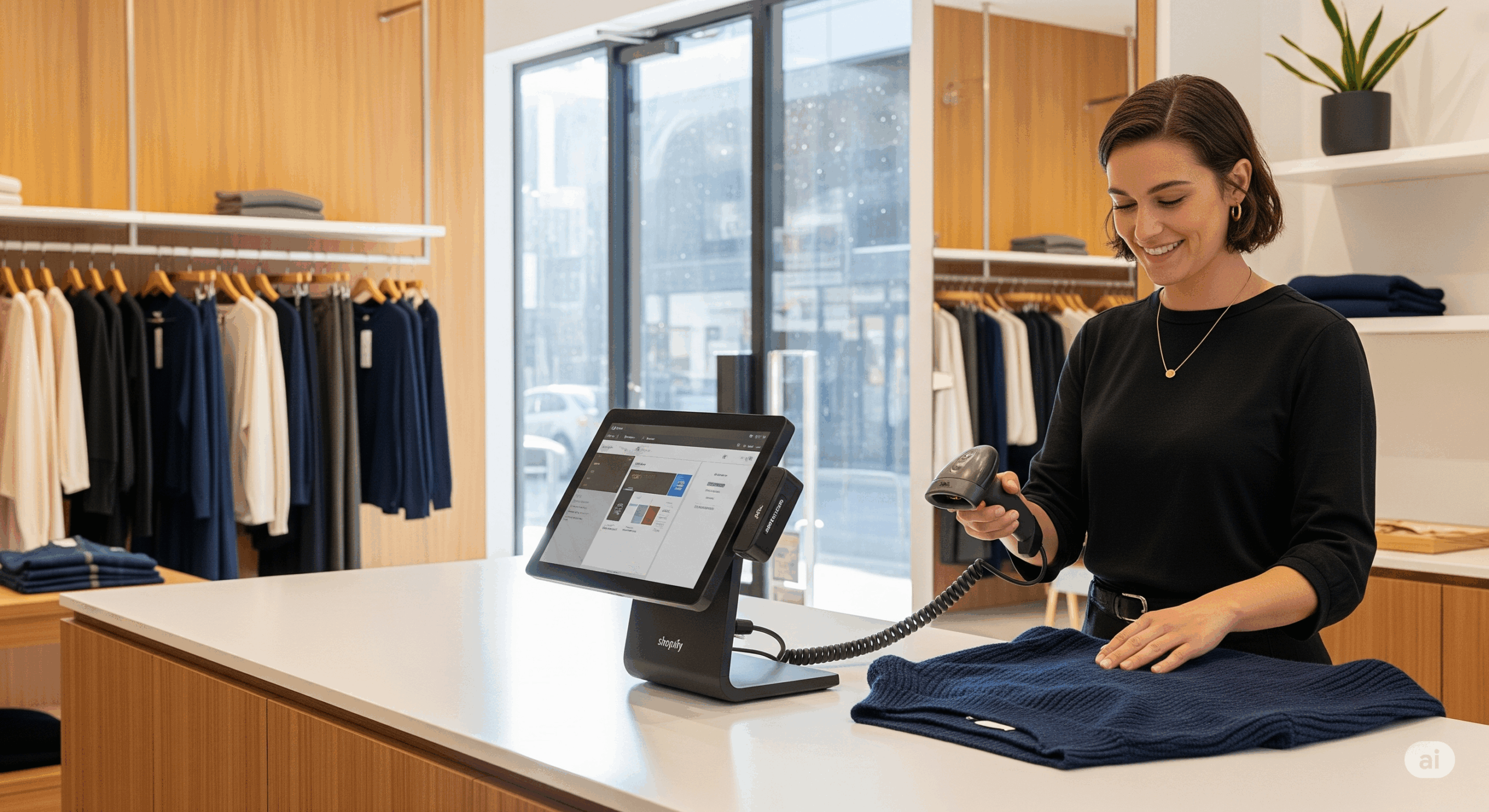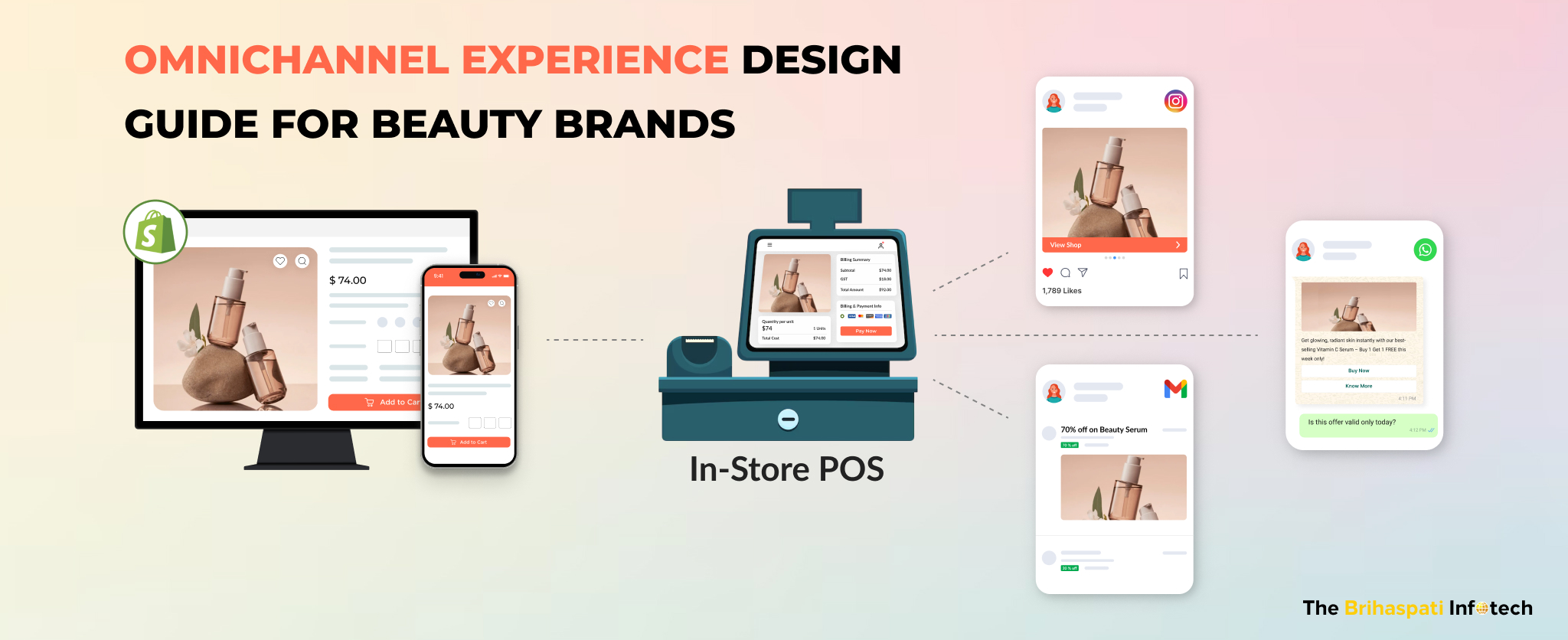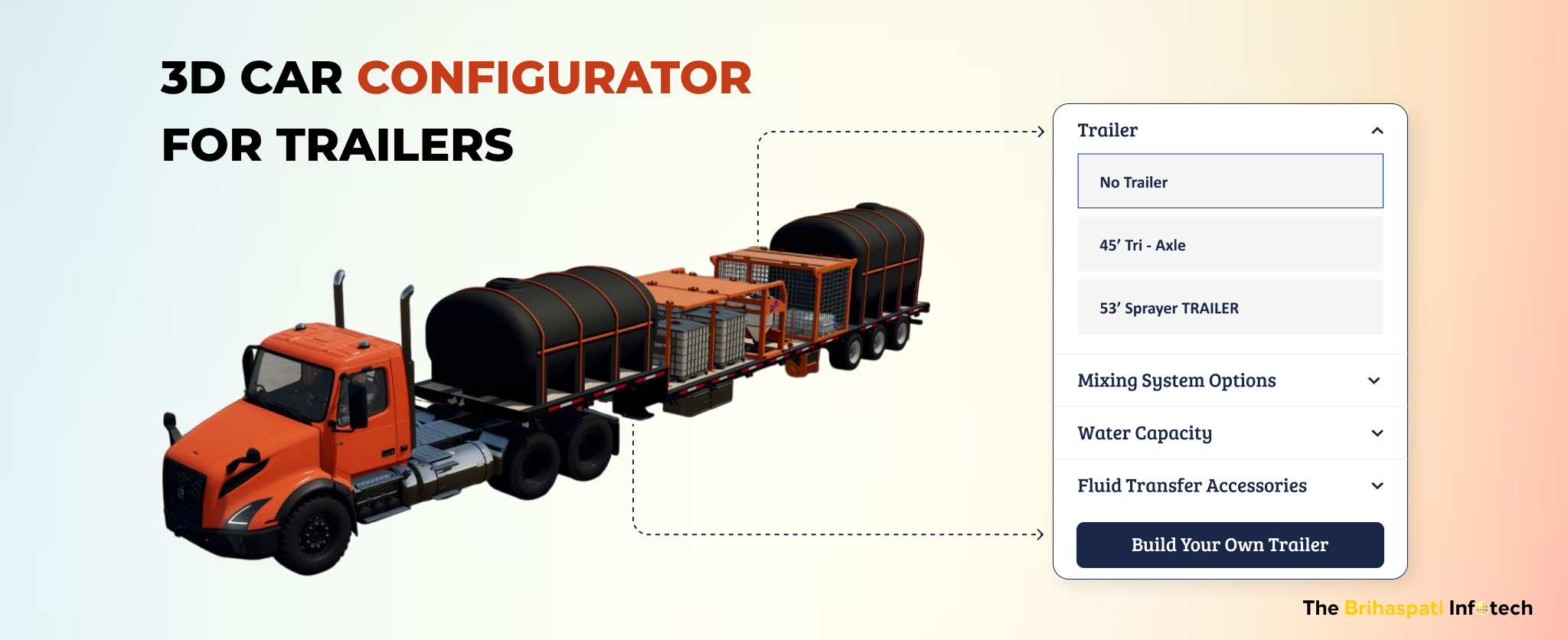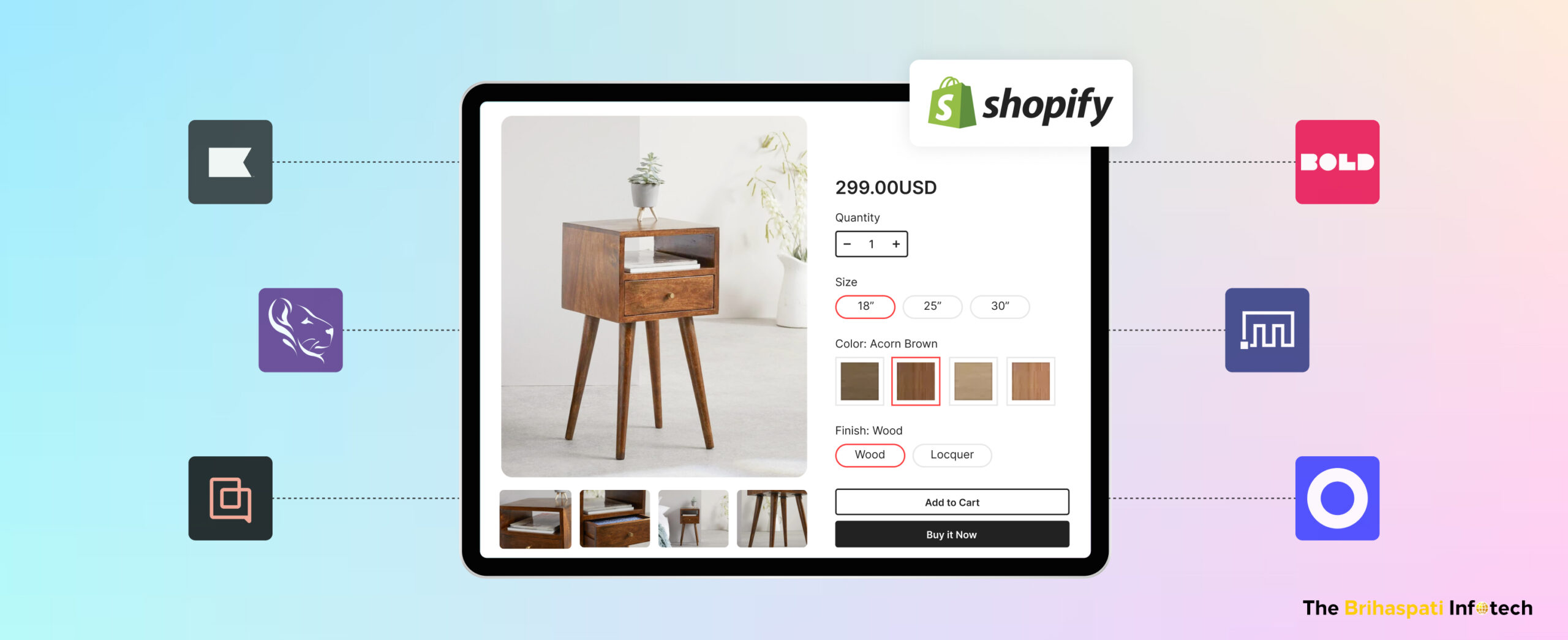
Top 10 eCommerce Store Development Trends for 2025
Overview
eCommerce Store Development is evolving rapidly, redefining how businesses engage with customers and drive revenue. By 2025, global eCommerce sales are expected to surpass $6.56 trillion, fueled by shifting consumer behaviors, AI-powered personalization, and immersive technologies like AR and VR. With 17.1% of online purchases projected to occur via social commerce, businesses must embrace innovation to stay ahead in the digital marketplace.
At The Brihaspati Infotech, we specialize in building future-ready eCommerce development solutions that integrate the latest trends and technologies. Whether it’s optimizing checkout flows, implementing AI-driven recommendations, or creating seamless omnichannel experiences, we help businesses thrive in the digital marketplace.
Join us as we explore the top 10 eCommerce Store Development trends shaping 2025 and guide you in choosing the perfect trend for your business!
Selecting eCommerce Store Development Trends: A Quick Guide
Stay ahead of the competition by choosing eCommerce store development trends that align with your business goals. Use this quick guide to make smarter, future-ready decisions.
| Trend | Ideal for Business that | Why it works |
| Artificial Intelligence | Wants to personalize experiences in fashion, electronics, or furniture. | Improves recommendations and boosts sales. |
| Mobile Commerce | Target mobile-first shoppers in fashion, beauty, or food delivery. | Enhance on-the-go shopping experiences. |
| Social Commerce | Wants to sell directly on social media in fashion, beauty, or lifestyle. | Leverages social platforms for easy sales. |
| Advanced Personalization | Tailored shopping experiences for health, fitness, and luxury fashion customers. | Drives higher conversions with personalized offers. |
| Headless Commerce | Needs flexibility for multi-channel sales in retail, consumer goods, or beauty | Scalable, customizable, and omnichannel-ready. |
| Multiple Payment Gateway | Require flexible payments in electronics, travel, or home goods | Accommodates global payment preferences. |
| Digital Strategy | Focused on performance marketing for online retail, home products, or FMCG | Data-driven strategy improves targeting and retention. |
| Augmented & Virtual Reality | Sell visual or tactile products in fashion, furniture, or cosmetics. | Improves visualization and purchase confidence. |
| Voice Commerce | Sell in-home appliances, books, or groceries | Simplifies shopping with hands-free options. |
| Blockchain Technology | Perfect for luxury goods, transparent supply chains, and wellness brands | Ensures secure transactions and product authenticity. |
Ecommerce Store Development in 2025: 10 Must-Know Trends
At The Brihaspati Infotech, a leading eCommerce store development company, we empower brands with scalable, future-ready solutions tailored to evolving market trends.
Now that you’re familiar with eCommerce store development trends, let’s take a closer look at each of the top 10 trends shaping 2025.
1. Artificial Intelligence in eCommerce Store Development
By 2025, AI will be a driving force in eCommerce, with 89% of retailers integrating AI into their operations. AI is reshaping eCommerce Store Development, driving automation, personalization, and smarter decision-making. Here are the key innovations leading this transformation.
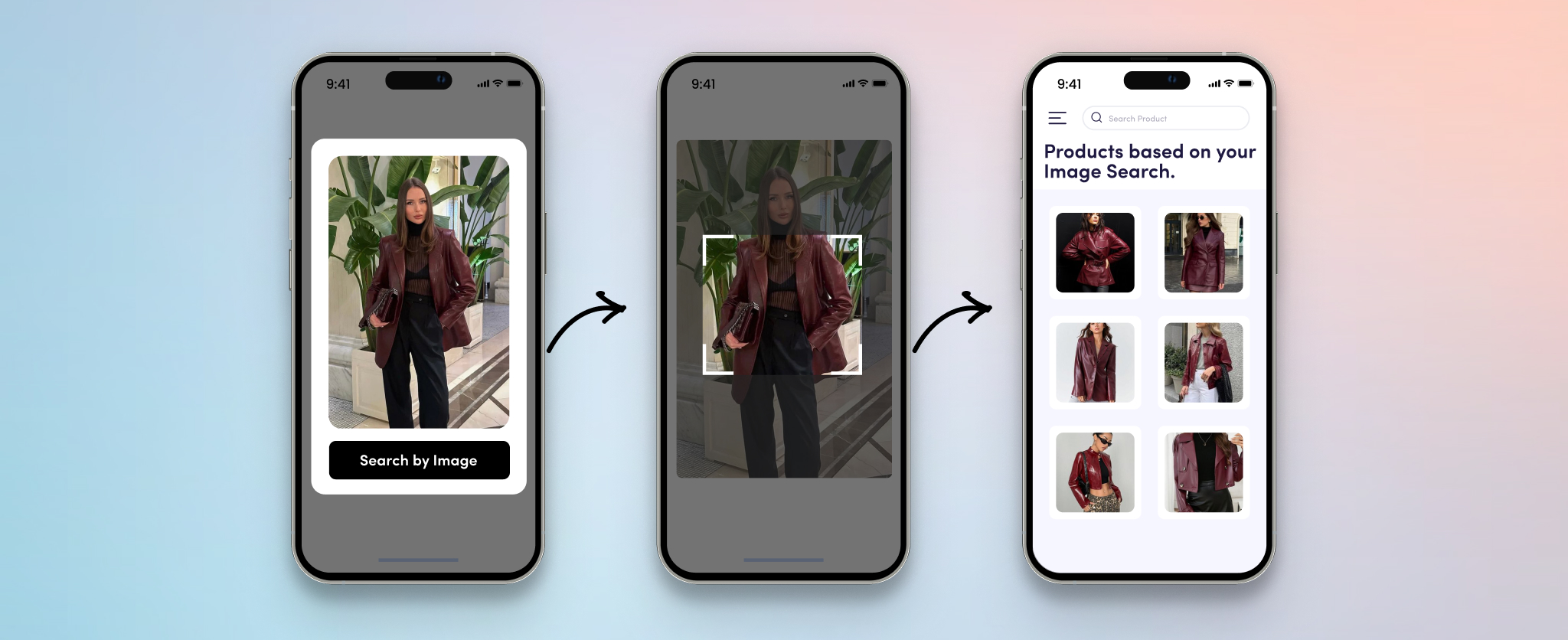
Key Trends:
- AI-Based Inventory & Supply Chain Management: AI helps optimize stock, forecast demand, and automate tracking to avoid shortages or overstock. See how we implemented this in our Shopify AI integration for inventory management.
- Visual Search & AI-Driven Product Discovery: AI enhances shopping experiences by enabling customers to search for products using images instead of keywords, making it easier to find relevant items with image recognition and deep learning algorithms.
- Conversational AI & Chatbots: AI-powered chatbots offer real-time customer support, handle inquiries, and improve engagement, reducing response time while boosting conversions.
- AI in Content Creation: AI tools generate compelling product descriptions and enhance images to boost engagement. We showcased this in our AI Image Enhancer implementation for sharper, high-converting visuals on WooCommerce.
2. Mobile Commerce & App development
Mobile-first experiences are shaping the future of eCommerce store development, driving faster transactions and enhanced engagement.
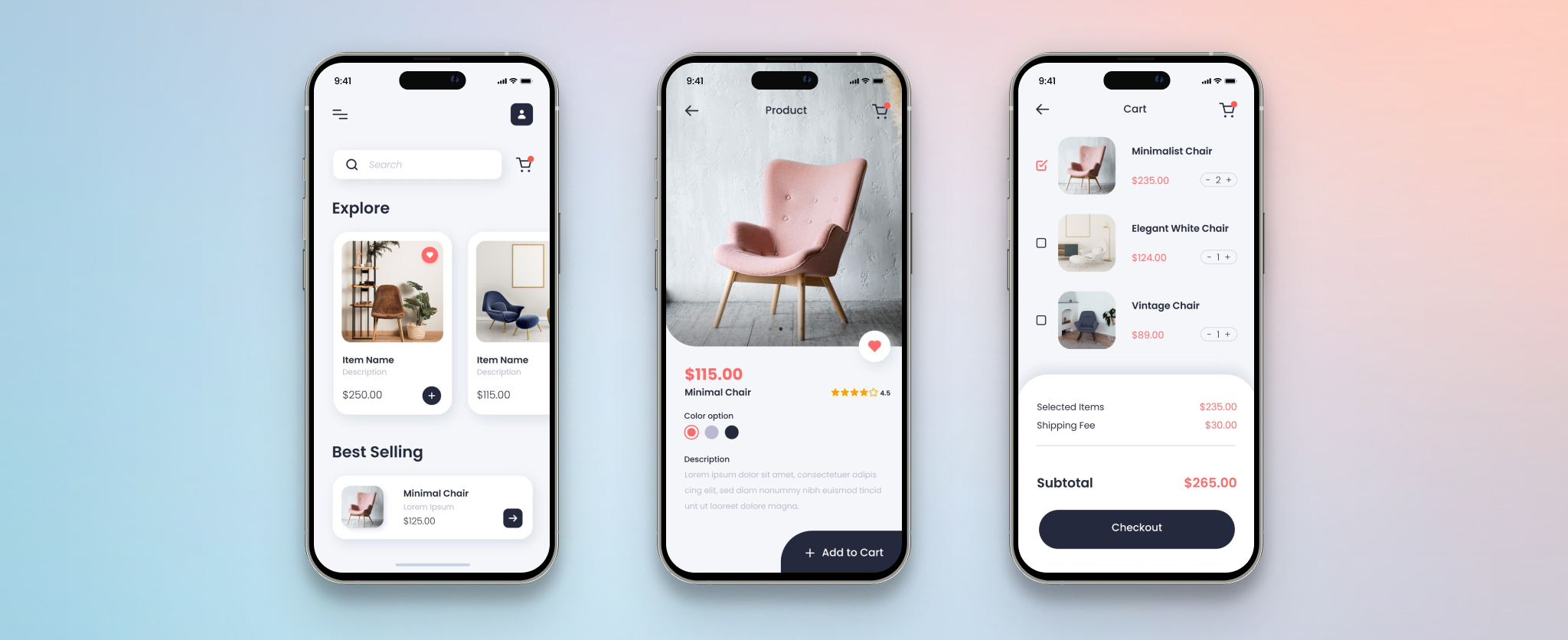
Key Trends:
- Rise of Mobile Shopping Apps: 85% of consumers prefer apps over mobile websites, leading to higher conversion rates.
- Seamless Website-to-App Transition: Businesses are converting their eCommerce websites into fully functional mobile apps to improve user experience and engagement.
- Mobile-First Loyalty Programs: Brands are integrating app-exclusive rewards, gamification, and personalized discounts to boost engagement and retention.
3. Advanced personalization in eCommerce Store Development
From dynamic pricing to interactive customization tools, personalization is transforming eCommerce store development into a one-to-one engagement model.
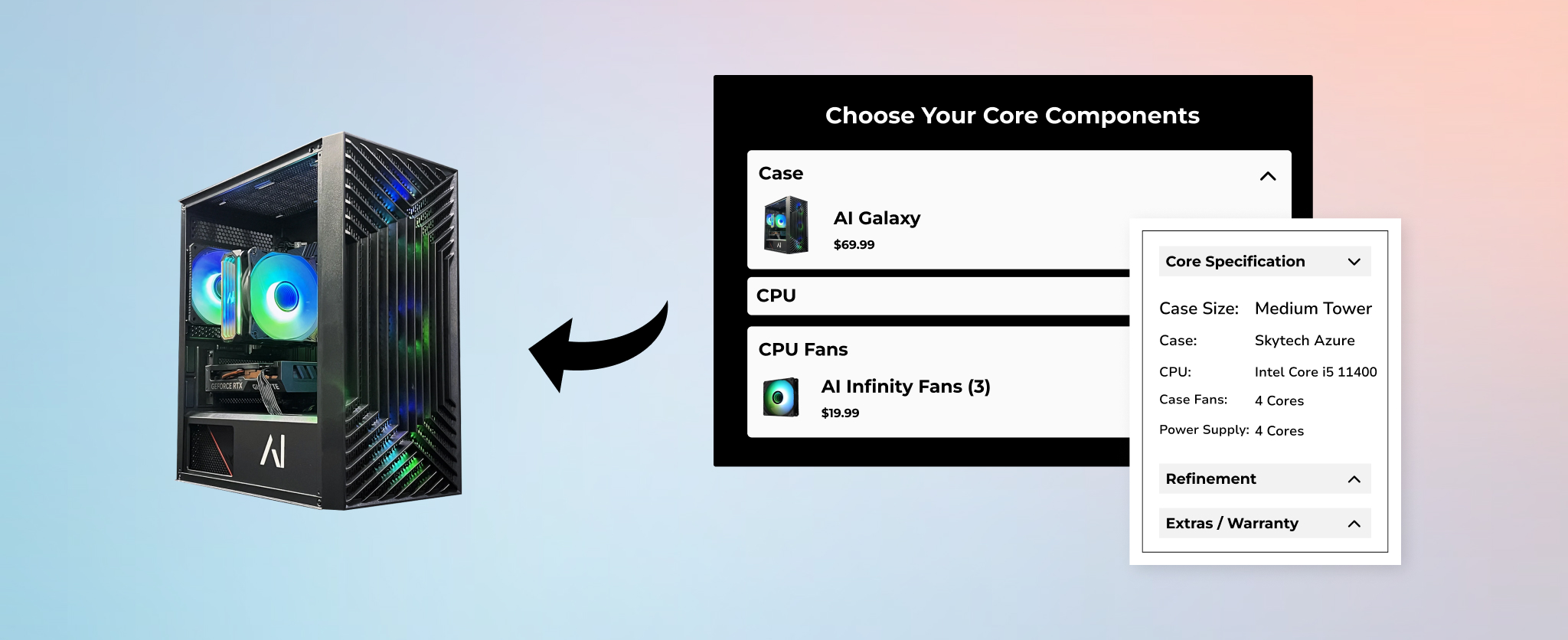
Key Trends:
- Interactive Product Customization Tools: Shoppers now expect control over their purchases through real-time personalization tools. These features let users tailor products to their preferences like building a custom PC or designing a personalized cricket bat using interactive configurators.
- Personalized Content & Storytelling: Brands are enhancing engagement with tailored digital experiences that feel personal and memorable. This includes interactive content like cake builder apps or custom storybook creators that adapt to user preferences.
- AI-Driven Predictive Shopping: Machine learning anticipates customer preferences, offering personalized product suggestions based on browsing behavior and purchase history.
4. Headless and Composable Commerce
In 2025, Ecommerce Store Development is evolving beyond traditional storefronts. Businesses are embracing Headless and Composable Commerce, allowing them to build flexible, scalable, and high-performance eCommerce ecosystems that drive innovation and customer engagement.
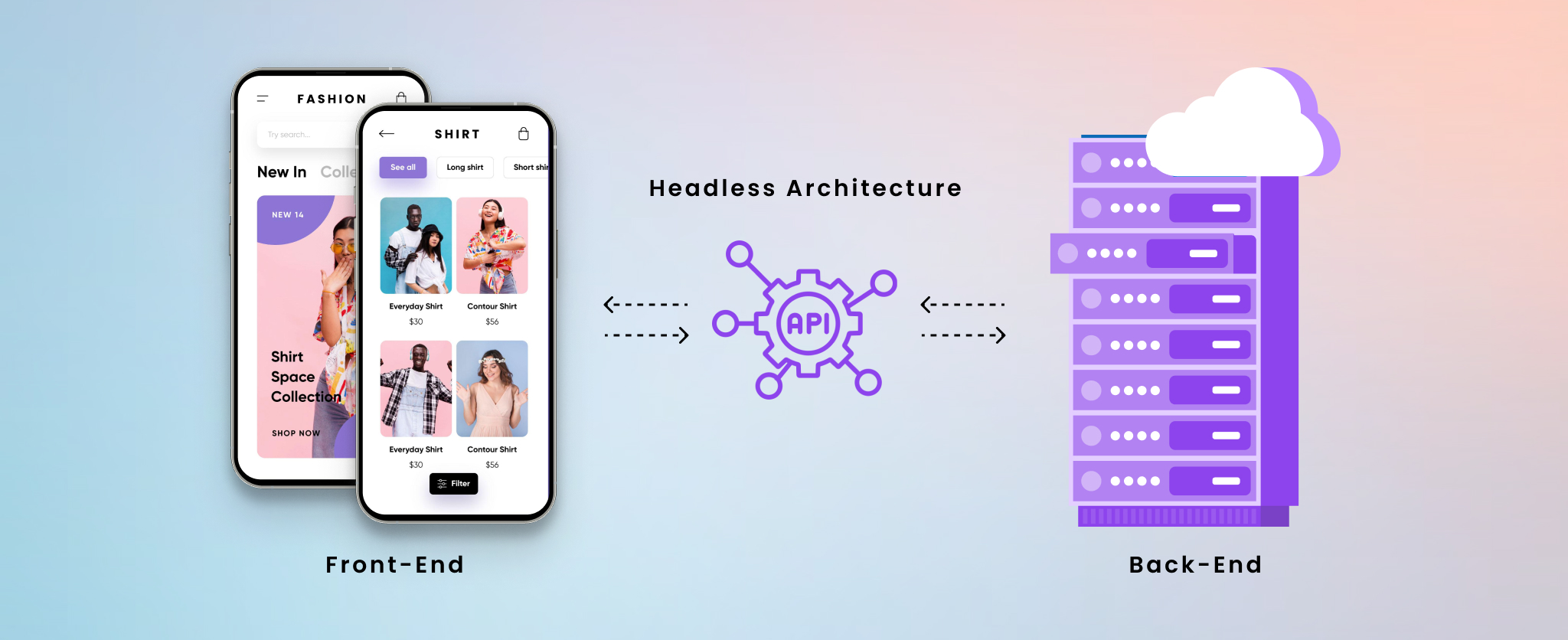
Key Trends:
- Decoupled Architecture for Flexibility: By separating the front-end and back-end layers, businesses can customize user experiences without disrupting core functionality. One such example is our team’s successful implementation of Shopify Hydrogen, enabling a scalable and high-performance headless commerce solution.
- Composable Commerce in Action: Businesses leverage composable commerce to build flexible direct-to-consumer (D2C) ecosystems, integrating tailored solutions for content management, loyalty programs, and payment processing.
- Microservices & API-Driven Ecosystems: Instead of relying on monolithic systems, brands are leveraging modular components like search, checkout, payments, and CMS, enabling faster development cycles and innovation.
5. Multiple Payment Gateway and Collection Options
Payment flexibility is a key driver of eCommerce success. As part of modern eCommerce store development, businesses are integrating multiple payment gateways to offer seamless transactions, reduce cart abandonment, and cater to diverse customer preferences.
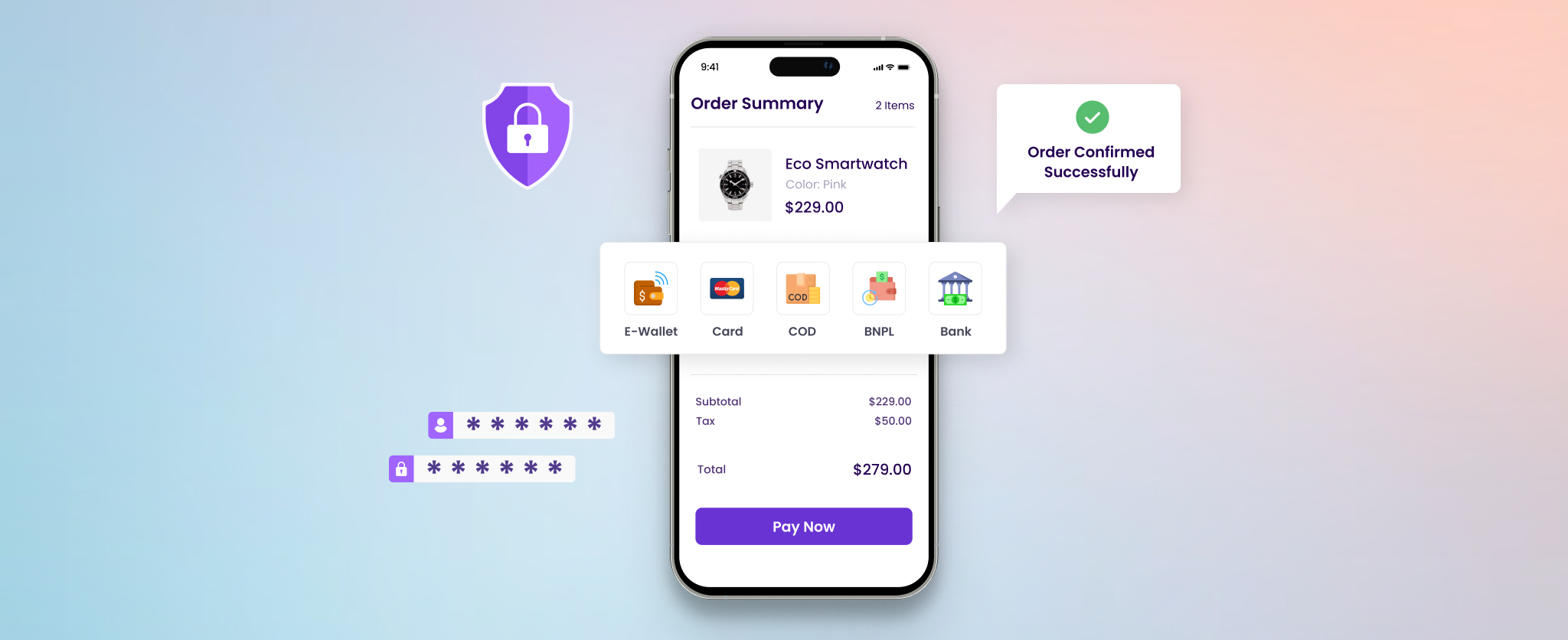
Key Trends:
- Regional Payment Integration: Platforms like Shopify Payments are streamlining transactions by incorporating local payment options, such as iDEAL in the Netherlands and Klarna across Europe, reducing reliance on external gateways for improved user experience.
- Smart Routing for Transaction Success: Fintech tools like Razorpay offer UPI, NEFT, wallets, and EMI options, while smart gateway switching boosts success rates and reduces payment failures. A custom Wix gateway with cryptocurrency support shows how flexible checkouts can meet modern user needs.
- Instant Payment Adoption & BNPL Growth: Consumers increasingly prefer real-time transactions and Buy Now, Pay Later (BNPL) models, leading to a surge in instant payment solutions that improve conversion rates and customer trust.
6. Augmented and Virtual Reality
AR and VR technologies are revolutionizing eCommerce development, bridging the gap between online browsing and immersive in-store experiences to engage customers like never before.

Key Trends:
- AR-Powered Product Visualization: Brands like IKEA are using AR to allow customers to virtually place furniture in their homes, ensuring they make informed purchasing decisions before checkout.
- Virtual Try-On Technology: Beauty brands are leveraging AR-powered solutions to allow shoppers to test makeup, eyewear, and accessories in real-time. One such example is our custom face mapping app, designed to enhance personalized shopping experiences.
- Immersive Shopping in the Metaverse: Businesses are exploring virtual storefronts, where customers can interact with products in 3D environments, mimicking real-world shopping experiences.
7. Social commerce
With 71% of users expected to make social media their primary shopping channel by 2030, social commerce is transforming eCommerce store development by reshaping the online shopping experience.
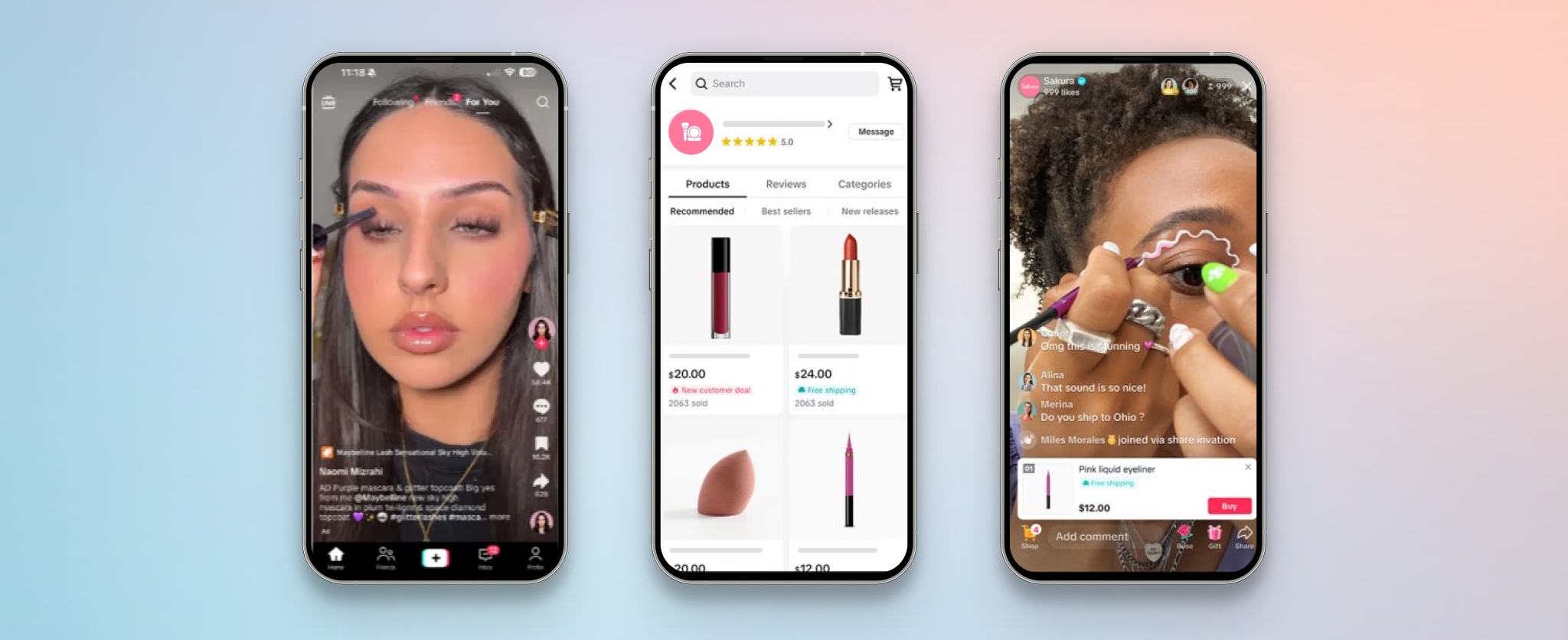
Key Trends:
- Seamless In-App Purchases: Platforms like TikTok, Instagram, and Facebook are integrating checkout features, making social media the new storefront
- Influencer & Peer Recommendations: Businesses are leveraging trusted voices to drive conversions, with influencers and peer reviews shaping purchasing decisions. One such example is our public Shopify app, designed to help retail merchants optimize their social commerce strategy.
8. Digital Strategy
The global digital advertising and marketing market is projected to reach $786.2 billion by 2026, highlighting the rapid expansion of digital strategies.

Key Trends:
- Analytics-Driven Strategy: Advanced analytics and real-time insights enable companies to make informed, strategic choices.
- Interactive Customer Engagement: Businesses are leveraging dynamic tools to enhance customer interactions. One such example is the Shopify quiz apps, which guide shoppers through personalized product recommendations based on their preferences.
- Shoppable Video & Interactive Content: Businesses utilize shoppable videos and engaging media content to create intuitive, conversion-driven experiences.
9. Voice Commerce
With voice shopping projected to reach $30 billion by 2026, voice commerce is rapidly transforming eCommerce store development through smart speakers and AI assistants.
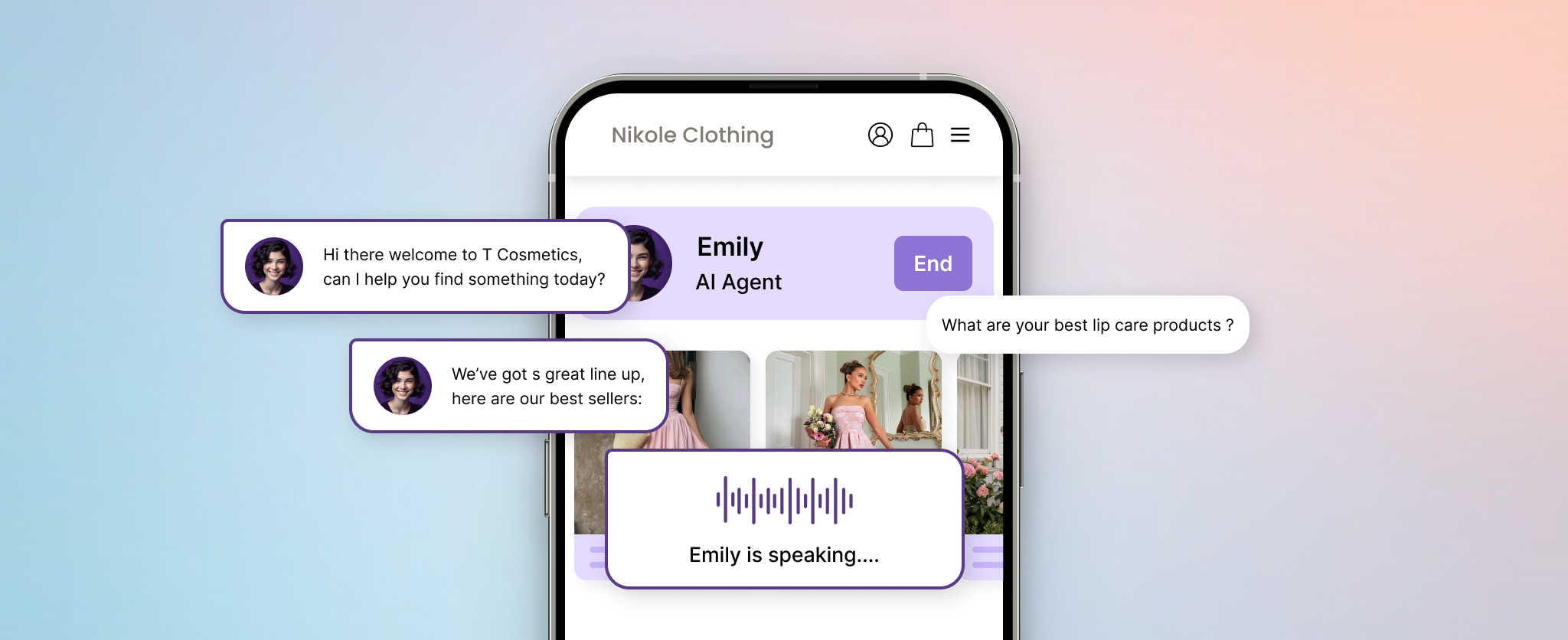
Key Trends:
- Hands-Free Shopping & Reordering: Voice-driven interfaces eliminate traditional barriers like typing or navigating menus, allowing users to reorder essentials, check deals, and track deliveries effortlessly.
- Voice-powered cart additions: Allowing customers to add items to their carts, check prices, and place orders using voice as shopping assistants.
10. Blockchain Technology
Blockchain is emerging as a powerful force in eCommerce store development, offering secure, transparent, and decentralized solutions for transactions, product tracking, and customer trust.
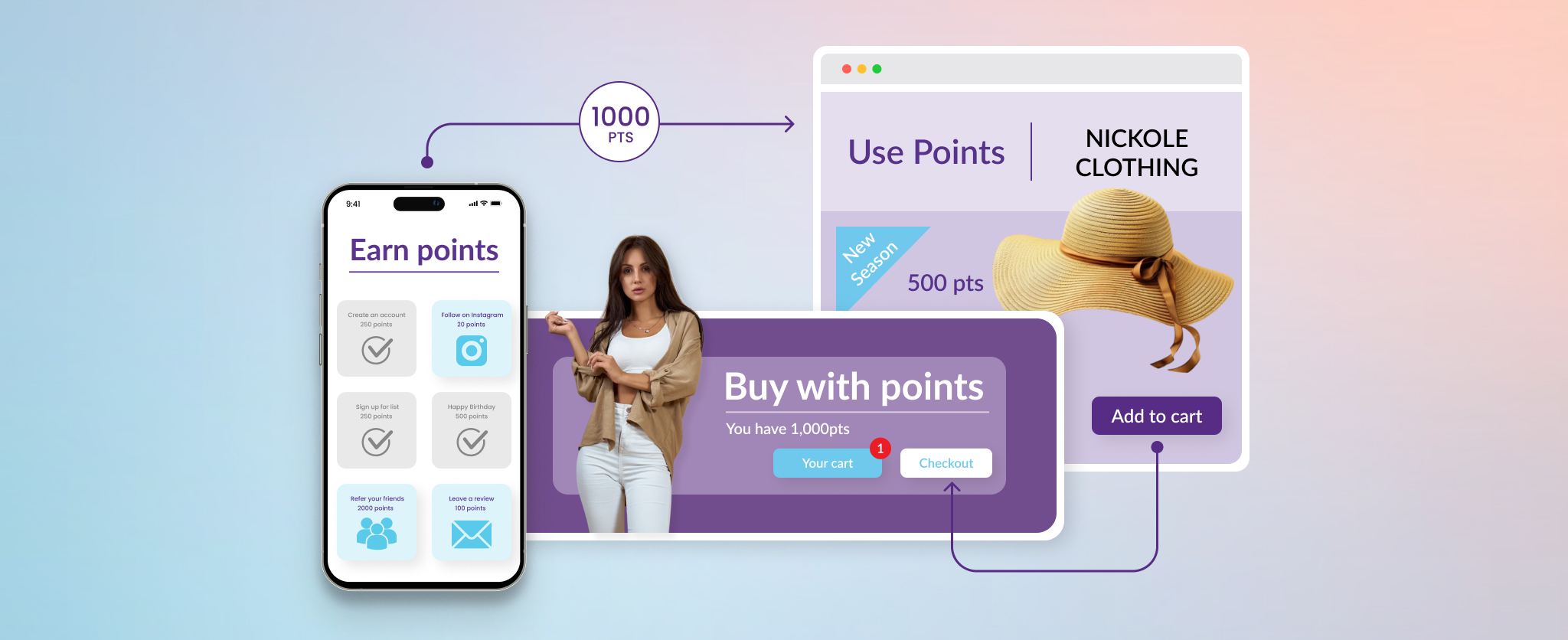
Key Trends:
- Transparent Supply Chain Tracking: Blockchain enables end-to-end product traceability, helping brands prove authenticity. It is important in luxury goods, organic food, and pharmaceuticals.
- Secure & Decentralized Transactions: With smart contracts and decentralized ledgers, payments become more secure, verifiable, and resistant to fraud.
- Loyalty Programs & Digital Ownership: Blockchain supports tokenized loyalty systems and digital receipts, allowing brands to build trust and engage users through tamper-proof rewards and ownership records.
Frequently Asked Questions
AI enhances product recommendations, automates inventory management, and personalizes user experiences, key features of modern eCommerce development services that drive higher engagement and boost conversions.
Looking to integrate AI into your store? Get started with our AI development services.
If your audience is mobile-first, especially Gen Z or frequent shoppers, investing in a dedicated mobile app through expert eCommerce development services can deliver faster performance, offline access, and personalized engagement via push notifications and in-app features.
Ready to launch your eCommerce app? Explore our mobile app development services to turn your vision into reality.
Monitor key metrics like conversion rates, engagement, customer retention, and ROI. Use A/B testing and customer feedback to assess if the trend adoption is delivering real value without adding unnecessary costs or complexity. Partnering with a reliable eCommerce store development company can help you track and optimize these results effectively.
Need expert help evaluating your eCommerce strategy? Connect with our digital marketing team to make data-driven decisions.
Headless and composable commerce decouples the front-end and back-end, enabling flexible, scalable stores that deliver consistent experiences across multiple channels.
Want to build a future-proof store? Explore our headless commerce development services to get started.
Why TBI is the best choice for Ecommerce Store Development?
Staying ahead in eCommerce store development means embracing the latest trends that drive growth and customer satisfaction. In 2025, key innovations like Artificial Intelligence, mobile commerce, social selling, headless and composable commerce, and diverse payment options are reshaping how businesses connect with shoppers.
At The Brihaspati Infotech, we specialize in eCommerce development service that helps entrepreneurs leverage the latest trends to build scalable, secure, and engaging online stores. Whether you want to implement AI-driven personalization or explore headless commerce architectures, our expert team delivers tailored solutions designed for your success.
Ready to boost your ecommerce performance? Schedule a consultation
Stay Tuned for Latest Updates
Fill out the form to subscribe to our newsletter



